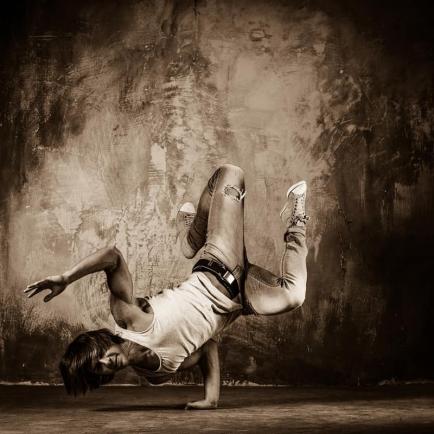
As we raise our children to adults, we teach them many important lessons. Lessons about health, safety and trust.
There is one vital bit of knowledge we sometimes neglect and it is one of the most important lessons every human being needs to understand and embrace. Without it, we can fall into a pattern of self-destructive behavior without any accountability.
Self-mastery
.
How many of us know adults who make this claim - "It just happened. I didn't mean for it to. I couldn't help it."
Maybe, they "fell" in love with an online chat buddy. Perhaps, they "accidentally" clicked on a porn site. Or, they "had to" have that drink.
Children who grow up around adults who take accountability and practice self-mastery will learn those concepts. The bottom line is that very little in life happens by accident. It happens because we believe that things are random and that we have very little or no control over our lives. We do. Ultimately, there is a nanosecond when we make a choice. We choose to go to a bad site. We choose to grow a relationship with someone other than our spouse. We choose to go into a bar. We choose. We may do it because we are troubled, discouraged or scared. But we choose.
I had a wonderful therapist who taught me, "These thoughts come onto the stage of our minds. It is up to us whether to sit and let them entertain us or to close the curtain and shut down the show."
Here are a few tips for helping your children learn self-mastery:
Teach by example
When you do something wrong, explain to your children how it transpired and the decision that you made that went south. Take accountability. Tell them what you will do differently the next time.
Teach by analysis
When your child does something wrong and tells you, "It just happened," calmly ask him to stop and think about the time leading up to the event. Ask him about his frame of mind, mood, the thought process and the last thing he was thinking just before it happened. Help him to understand why the bad decision might have happened (what triggered it) and have him come up with possible ways to prevent it from happening again. Ask your child how he thinks he can keep from making that choice again.
Teach by responsibility
Ask your child what she thinks her discipline should be after a bad choice. Take this into consideration when deciding what to do next. Often, children are wise enough to figure out a fair and just punishment for their own actions.
Teach by mercy
If your child is able to analyze her choice and come up with a good understanding of what went wrong, consider the discipline accordingly. This is not to say you should let her off entirely, but rather use her new understanding to her own good. The object of good parenting is to get kids to do the right thing because it is the right thing to do, not out of fear of punishment. One day, they will be adults and won't have someone else holding them accountable. They need to learn how to do this for themselves.
Teach by praise
Make sure you notice when things go right. When you see your child making good choices and being accountable, notice and give kudos. This will help him remember and choose better the next time he's faced with a tough decision. Reinforce by asking, "How do you feel about the good choices you're making?"
Teach
Gathering your family once a week or so and having lessons on self-mastery are a great way to head off bad choices before they happen. Consider holding a gathering to decide and vote on the principles your family stands for. Here's how. Make it fun. Have a lesson, serve a snack, play a game. Try not to preach so much as teach with an open exchange of ideas.
Investing the energy in helping your children to understand that they are the ones in charge of themselves and that they must think before acting is critical to turning out adults with a sense of self-mastery. Sometimes, as parents, we are exhausted to the point where we want to say, "Figure it out yourself! Go ahead, make some stupid mistake! You'll be sorry." and leave it at that. If you have multiple kids, it is that much more effort. But if you put in the work, in the end, when they are out there on their own, raising their own children in a responsible way, you'll sit back and sip that cup of chamomile and pat yourself on the back for a job well done.

